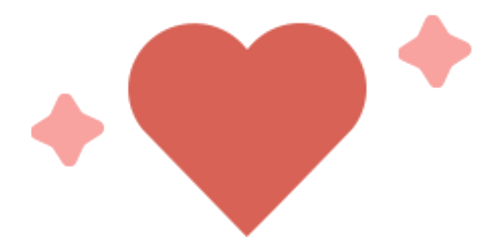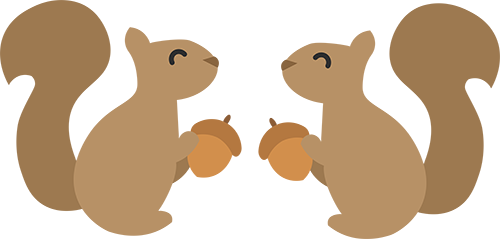Some Things We've Learned in 5 Years
3-May-2023

It’s hard to believe it’s been 5 years already! That’s right, Plastic Fern Studios has been around for more than 5 years now working on some of the coolest games with some very cool people and we’ve learned a ton (both good and bad) from these experiences and thought it would be worth sharing a few. I tried to pick some different aspects from development to how I run this company from a value standpoint and hope you find it interesting. Thanks for all the support!
Jay Fernandes, Director
Check out just some of the cool things we’ve worked on since we opened! (With quite a few more to come!)


So how do we do it?

Since many of our team have worked at a variety of places leading up to Plastic Fern Studios, we had a lot of thoughts about what did and didn’t work for us personally in past. We aimed to try something different and settled on a few key things. Mainly, we wanted to be sustainable and employee centered. This mean no ebb and flow of hiring/firing for projects, fair pay, benefits, and a focus on a work environment that feels safe and honest. It came with a few hurdles and a lot of people telling us “You know you don’t legally have to do that” in an effort for us to “save costs” (at the expense of employee well-being in my opinion). Here are some key things about our studio:
- We are completely remote, and have been since we started in 2018.
- We do not have set “core” hours though we do have natural overlap (and other async-based processes to compensate) but we let everyone work on their own schedule to fit their life.
- This gives people freedom to choose when working best suits their mood, schedule, or daily life and helps benefit both mental health and productivity. It also allows for taking care of things without having to take time off too, so that can be saved for more important things.
- In order to accomplish a remote/async setup like this there are a lot of processes in place to establish asynchronous collaboration. For example: we don’t do a lot of meetings and instead communicate via slack, scheduled messages, and post things with the expectation that those things might not get immediate attention.
- We operate with an understanding that everything is not always urgent/on fire and projects can still be released on time with this method!
- Accomplishing all of this also requires a good producer to be on top of things as well as a team to buy into those processes (plus good tools help). It also involves boundary setting and respecting other’s time and schedules.
What we try to keep in mind is that If something is SO important that someone else needs to answer it immediately, then a core process has failed somewhere and that needs to be addressed.

We’ve also learned a lot about how best to support teams and get the most out of the projects we get the pleasure of working on. A few ways we try to make these successful is by collaboration with clear goal setting and transparency/communication. We believe this is paramount to successful relationship building both internally as well as with our clients. We aim to set clear expectations and work towards the same collective goal to achieve results.
- We do this by having an understanding of the bigger picture and overarching goals to gain clarity on priorities, timelines, and next steps (or huge risks and missed things!) Examples are pre-orders, GDC/conf demo, platform specific timelines, launch issues etc.
- We work with our clients to ensure that project priorities align with specific tasks and direction of our team as well as the bigger picture of things to help be a second set of eyes and risk mitigation
- Each project/game has unique goals with many departments having different stakes and needs (i.e. publishers vs. the game dev. vs the porting studio) and we try to make sure these are met where we can
- Producers and processes are very important to ensure timelines and goals are met
- Working with developers/publishers to ensure that budgets (and schedules) are properly planned for and include fallbacks for failures, patching, or other potential issues

Platforms! What many would argue is our main specialty is also one of the hardest things to consistently get right and takes constant work to make sure things are up to date as well as old knowledge shared with new team members.
The good news is that the more we work on platforms the better it gets (generally!). This is partially because we have a lot of shared knowledge of past failures and successes but also because we specifically do things to make sure the next game we work on can immediately benefit from a previous one. This includes:
- Keeping track of past certification failures/major issues (prevents failing for the same reason twice on multiple projects, especially if it’s something weird/unique)
- Tracking how to do things on specific platforms and creating resources for us to be able to refresh/do difficult things without having to second guess.
- Our experience and these resources mean that platform compliance failures can be more predictable since we’ve done it enough and learned how the system works (and some of us have even done it directly for platforms).
- This type of constant documentation, refreshing, and learning is extremely important because platforms change and adapt constantly and it’s imperative to stay on top of these changes and stay up-to-date on evolving rules and requirements or features (we even have a platform specialist whose job it is to do this very thing!)

We have successfully built a small expert team in these 5+ years to do what we do. There are a few times where we could have gone a very different direction and I specifically chose not to since it went against my vision of a sustainable company. We are what I would call a “slow-growth” company and take hiring/growing very seriously, including turning down work that would require “fast-growth” or multiple hires since it would change many dynamics in the company. We care about:
- Bringing on the right people that fit our values, vision, and team
- We purposefully stay small and grow slowly, only hiring on average 1-2 people per year (or less). This allows us to focus more on both veteran and new hires and hone in on the processes and pain points before bringing someone else into the fold.
- The bigger the company gets, the harder a lot of things become, including less individual autonomy, less attention that everyone can get internally and externally, and less ability to be hands-on with each project we do.
- Being large or growing quickly can also exacerbate existing problems and make them 100x worse, so we want to solve these issues first before considering bigger growth (bad on-boarding for example can have very long-term effects, and moving more people through bad on-boarding won’t help so we focus on perfecting the process each time).
- We technically could hire a bunch of people (and probably make a bunch more money and work on even larger projects) but we choose to do this thoughtfully in order to maintain our values and choose work we care about instead of greed or simply money. If the choice is to make money but turn our team into burnt out dust, we’ll work on something else instead and adjust accordingly to support each other’s well-being instead of profits only.
- Growth changes team dynamics. We’re small enough that everyone knows each other, but with 20, 40, 100 people (1000 etc.), especially if everyone is remote, you end up having lost that ability for a small knit group. It’s possible to still be successful at those levels, but it’s just not our goal right now.
All in all, it’s been a wild ride through some of the worst times (looking at you 2020+) and we’ve managed to come out the other end with an incredible team working on some fantastic games, and we’ve learned a lot a long the way.

